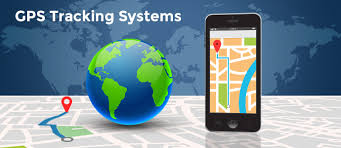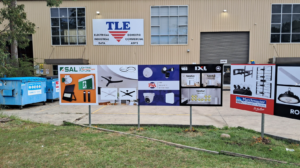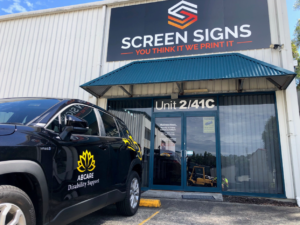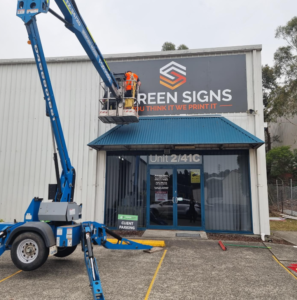15 Ways GPS Tracking Systems Can Save You Money
In today’s fast-paced world, businesses and individuals are constantly looking for ways to reduce costs and improve efficiency. One of the most effective tools for achieving this is a GPS tracking system. Whether you manage a fleet of vehicles or simply want to track personal assets, GPS Tracking technology offers significant financial benefits.
By leveraging real-time GPS tracking systems, automated reports, and geo-fencing, GPS tracking systems can help cut expenses, improve productivity, and enhance security.
In this article, we’ll explore 15 ways GPS tracking systems can save you money and why they are a must-have investment.
15 ways GPS tracking systems Can Save You Money
1. Reduced Fuel Costs
One of the biggest expenses for businesses operating vehicles is fuel. A GPS tracking system helps monitor driver behavior, optimize routes, and reduce idling time. By eliminating unnecessary fuel consumption, businesses can save up to 20% on fuel costs.
2. Optimized Route Planning
Using GPS tracking Systems, drivers can take the most efficient routes, avoiding traffic congestion and roadblocks. This saves fuel, reduces wear and tear, and improves delivery times, leading to greater customer satisfaction.
3. Lower Maintenance Costs
GPS tracking systems can alert fleet managers about upcoming maintenance schedules, preventing costly breakdowns and unexpected repairs. Properly maintained vehicles last longer and require fewer major repairs over time.
4. Reduced Insurance Premiums
Many insurance companies offer discounts on premiums for businesses that use GPS tracking Systems. The system improves vehicle security, reduces accident risks, and ensures responsible driving behavior, leading to lower insurance costs.
5. Prevention of Unauthorized Vehicle Use
Unauthorized use of company vehicles for personal errands increases fuel and maintenance costs. With real-time tracking systems, business owners can ensure that vehicles are used strictly for work-related purposes, eliminating unnecessary expenses.
6. Minimized Theft and Asset Loss
GPS tracking systems provide security by enabling real-time vehicle and asset tracking. In case of theft, law enforcement can recover stolen property faster, reducing financial losses and insurance claims.
7. Improved Employee Productivity
By tracking employee movements, businesses can ensure that drivers are working efficiently. This helps eliminate wasted hours, improves service delivery, and ultimately increases revenue.
8. Accurate Payroll and Overtime Management
GPS tracking Systems logs actual working hours, preventing time theft and fraudulent overtime claims. Businesses can accurately compensate employees based on actual hours worked, reducing unnecessary payroll expenses.
9. Lower Administrative Costs
GPS tracking Systems automates many administrative tasks such as route planning, fuel consumption reports, and maintenance schedules. This reduces paperwork and minimizes the need for additional administrative staff, cutting down on overhead costs.
10. Enhanced Customer Service
When customers receive accurate delivery time estimates, their satisfaction increases. Improved customer retention means repeat business and reduced costs spent on acquiring new customers.
11. Reduction in Fines and Penalties
GPS tracking helps ensure that drivers adhere to speed limits and other traffic regulations, reducing the risk of costly traffic fines and penalties.
12. Lowered Risk of Accidents
By monitoring driver behavior, such as harsh braking, speeding, and reckless driving, GPS tracking systems can promote safer driving habits, reducing accident-related expenses.
13. Elimination of Fake Mileage Claims
Businesses that reimburse employees for mileage can accurately verify distances traveled using GPS logs, eliminating fraudulent mileage claims and unnecessary reimbursements.
14. Better Compliance with Industry Regulations
Industries that require regulatory compliance—such as logistics and transportation—can automate record-keeping to ensure they meet government requirements. This prevents hefty fines and legal issues.
15. More Efficient Utilization of Resources
GPS tracking systems helps businesses allocate vehicles and workforce efficiently, ensuring that every resource is used optimally. This prevents unnecessary investments in additional vehicles and manpower, reducing operational costs.
Conclusion of GPS Tracking System
Investing in a GPS tracking system is a smart decision for any business or individual looking to cut costs, improve efficiency, and boost profitability. From reducing fuel expenses to preventing theft, the financial benefits of real-time tracking technology are undeniable.
FAQs
Q1. How can GPS tracking systems help reduce fuel costs?
A: GPS tracking systems optimize routes, reduce idling time, and monitor driver behavior—helping cut down on unnecessary fuel usage and improve overall fuel efficiency.
Q2. Do GPS tracking systems lower vehicle maintenance expenses?
A: Yes, by tracking mileage and sending maintenance alerts, GPS systems help prevent costly repairs and extend vehicle life through timely servicing.
Q3. Can GPS tracking reduce insurance premiums?
A: Many insurance companies offer discounts to businesses that use GPS tracking systems, as they enhance vehicle security and promote safe driving habits.
Q4. How does GPS tracking improve employee productivity?
A: GPS tracking discourages unauthorized vehicle use and ensures drivers stay on schedule, improving time management and workforce accountability.
Q5. Is GPS tracking useful for theft prevention and asset recovery?
A: Absolutely. Real-time GPS tracking allows immediate location of stolen vehicles or assets, significantly improving recovery rates and reducing financial loss.
Visit: https://freshvoicehub.com/













